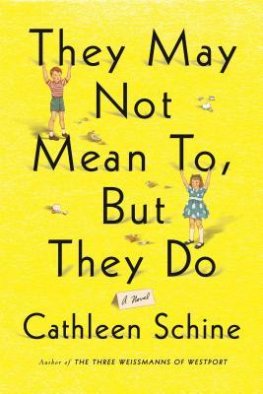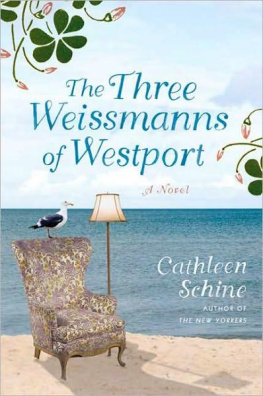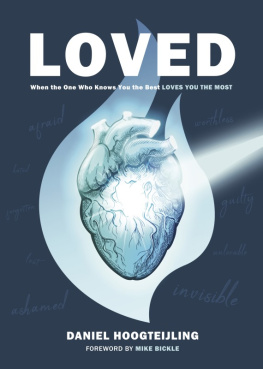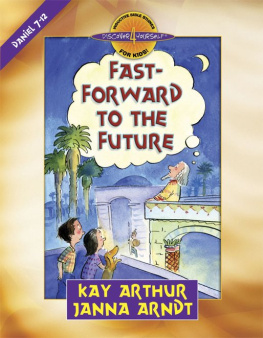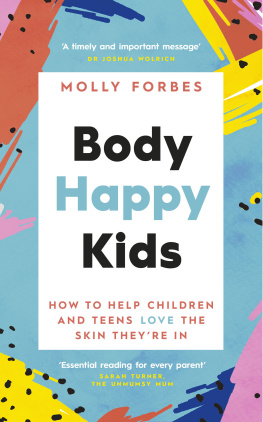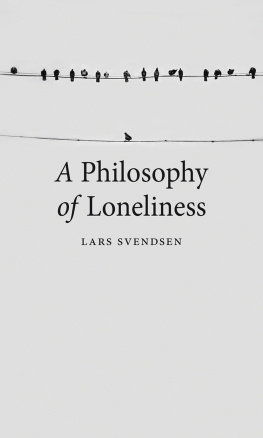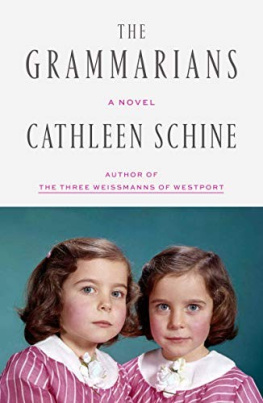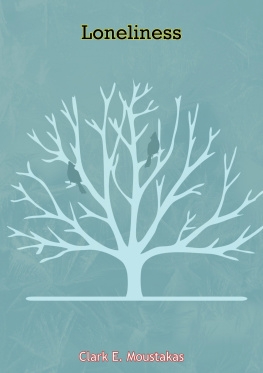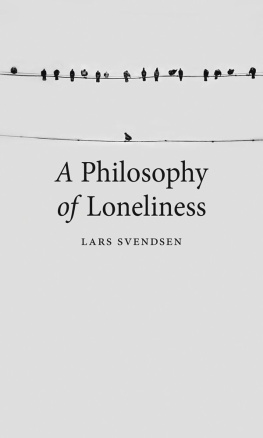Cathleen Schine
They May Not Mean To, But They Do
To my mother,
from whom and to whom
everything, always
They fuck you up, your mum and dad.
They may not mean to, but they do.
from Philip Larkin, This Be The Verse
Molly Bergman moved to California, and it broke her mothers heart. There are daughters who spend their lives trying to escape their mothers, who move to their particular California the minute theyre able to, who never stop moving to California. Molly was decidedly not one of those daughters. It was a painful move even before her parents got, so suddenly, so old.
Mollys mother was named Joy, and people said, Oh, they broke the mold when they made that one. People who loved her said it, people who did not love her said it, too, for the same reason. They found Joy disconcerting, and they were right. She was so intimate and so remote, as remote as a faraway, nameless planet sometimes; sometimes soft and sympathetic. She was talkative, yet she heard everything you said or thought you might say. She was wise and she was deep, intuitive, the kind of person to whom people confided their darkest secrets; she was scatterbrained and easily distractible and often forgot peoples darkest secrets, which, she always said, was just as well.
She seemed to Molly, growing up, to be the busiest and most important mother in New York City. Joys work was her vocation, thats what Joy said when she was happy. When she was frustrated and tired, she said it was a velvet coffin without the velvet.
She was also beautiful, radiantly beautiful. Like a doe, fragile and supple and quick. She was blond, but her eyes were as brown as a does. When she smiled, everyone around her smiled, and she smiled a great deal, though it was often from abstraction rather than any particular moment of happiness. She loved New York because, she liked to say, she fit in with all the misfits.
Molly and her brother, Daniel, began their lives with Joy and their father, Aaron, in a two-bedroom apartment with dinette on the West Side of Manhattan, the dinette converted into a third bedroom. Their neighbors were immigrants from Eastern Europe, migrs from Brooklyn, teachers and violinists and opera singers. You could hear the opera singers as you walked down Broadway, arias amid the car horns. There were mom-and-pop dress shops and dairy restaurants and bakeries, and Molly remembered the square rooms, the high ceilings, the shutters that folded in on themselves, the deep windowsills on which she used to sit and look out at the street. But when Molly was eight and her brother six, their father inherited his familys manufacturing business, and the Bergmans left West Eighty-ninth Street. Aaron said the West Side was becoming seedy.
There were fewer Eastern European immigrants and Brooklyn escapees on Park Avenue, no dairy restaurants, more gentiles. It was a quiet, civilized neighborhood, at least until late afternoon, when the private schools let out. Molly and Daniel still went to their progressive private school on the West Side, but when Molly got off the bus, she could already hear the commotion of the East Side children at the corner store. She always waited for them to leave the store before buying her own candy and secretly envied them their noisy cabal and, even more secretly, their school uniforms.
Across the park is as far as we go, Joy declared. No farther, Aaron.
Daniel did go a bit farther when he grew up. He and his wife, Coco, and their two little girls lived on the Lower East Side. That was inexplicable to Joy and Aaron, moving to the tenements their grandparents had left behind. Inexplicable, yes, but accessible by subway, Joy said to Molly. The Bergmans were New Yorkers, she said, had always been New Yorkers. This was a fact, in a way that Mollys move to Los Angeles could never be.
* * *
Each time Molly left New York after a visit, Joy felt the air go out of the city.
Youre too attached, one of her friends said. My daughter lives in Australia.
Joy shuddered. A daughter in Australia might as well be a dead daughter. Divorce was a terrible thing, and she was sorry Molly had given up a perfectly reasonable husband so she could be a lesbian in California. It was peculiar, having a lesbian daughter, though plenty of her friends did, too, it turned out. But many things were peculiar in this world, and Joy had overcome her discomfort with Freddie. She even called her my daughter-in-law now. Freddie was a lot of fun, warm, kind, gainfully employed, and low-maintenance, everything a mother-in-law could ask for. Joy did not blame her for being a woman, or tried not to. Molly was happy, Joy could see that, and it warmed her heart.
But what good is a warmed heart if it is also broken? Joys heart was broken. By California.
Californiaeven the name had become ugly to Joy, like Lee Harvey Oswald or Sirhan Sirhan.
Joys parents had moved several times during the Depression, first to places where someone could take them in, then to places where they took others in. Each move was a shock to Joy, an almost physical jolt. So many people left behind shopkeepers, neighbors, the policeman on the corner, the ladies sitting on their stoops. They were what made a place a home. There were so many things one had to give up in this world. Why would you choose to give up your home? For California?
Perhaps she should move to California, too. Aaron might not know the difference.
Would you like to move to California, Aaron?
Come if you dare, our trumpets sound, he sang. Come if you dare, the foes rebound
He could not tell you what day it was, but he remembered his Purcell.
It was Sunday and she had ordered him a dinner of French toast from the coffee shop. New York was good for the elderly in that way, the deliveries. She had come to include Aaron in the category of the elderly, she realized with a pang. And where does that leave me, she wondered vaguely. At any rate, it was too difficult sometimes to herd Aaron and his walker out of the apartment and down the street to the coffee shop. She could have made French toast, she supposed. If there had been eggs. Or bread. If she still cooked.
Isnt there a joke, we could have ham and eggs if we had ham
and we had eggs!
They laughed, repeated it, We could have ham and eggs
Aaron took a bite of French toast and made a face.
You love French toast, Aaron, so stop it.
Do I?
He was hunched over the dining-room table. There was a bath mat on the seat of his chair as well as a blue chux pad. Joy leaned over and straightened them.
You going to work today? he said.
No, dear, its Sunday.
Oh yeah?
He took a bite of French toast and made another sour face.
Stop that, she said. Anyway, you need a haircut.
You going to work today? he said.
Sometimes Joy thought he was doing it on purpose. No, not today. Today is Sunday.
Oh yeah? What is this, anyway? he said, poking at the French toast.
Your dinner.
Im not hungry.
Joy grabbed his plate and brought it to the kitchen and scraped the French toast into the garbage.
Joy! Joy!
She stuck her head back into the dining room.
You going to work today? he asked.
If you ask me that one more time, Im putting a bag over your head, she said mildly.
Aaron brought his face down to the teacup and took a sip, then looked fondly at his wife. He pointed to the cup of almost colorless liquid. Join me, sweetheart?
He began to sing in his once clear voice, now heavy and hoarse. Tea for two, me for you
He sang pleasantly to himself while Joy fetched herself a cup of tea, and they sat looking out at the traffics red brake lights, something theyd both always found festive as the evening drew in.

